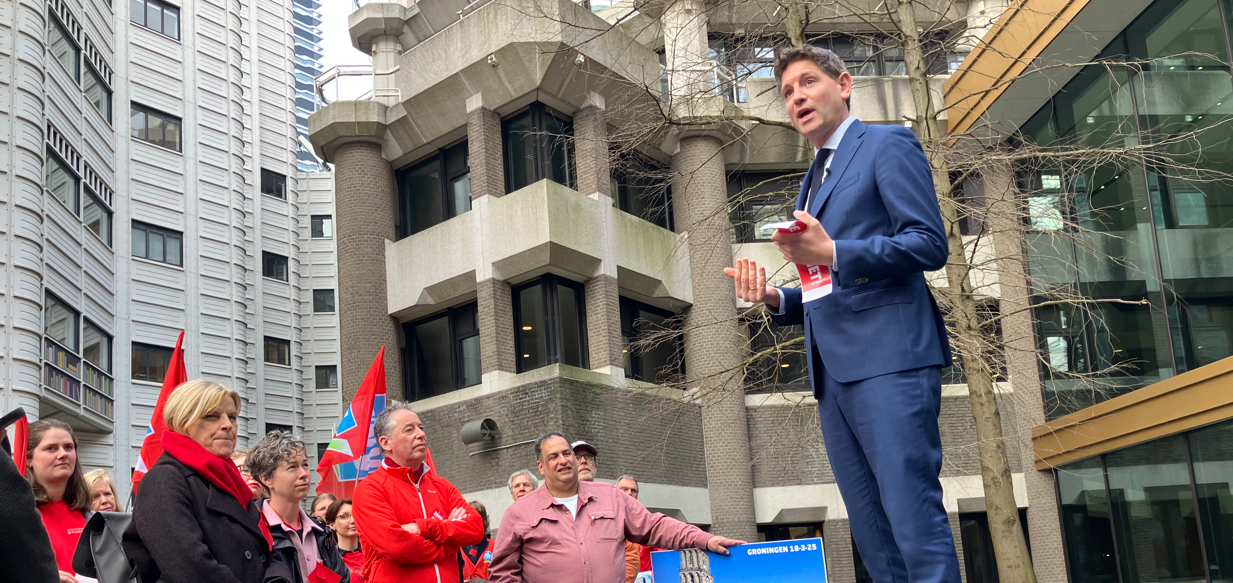Text Olmo Linthorst and Bas Belleman (HOP)
Education minister Eppo Bruins claims that universities and colleges launch more education programmes than they terminate. This is one of the arguments he uses to mandate consultation between the institutes. But is his assumption correct?
‘Education institutes must collaborate more, and the range of programmes must be coordinated at a national level’, states the first sentence of the OCW press release on Minister Bruins’ policy letter in which he outlines the future of secondary vocational education and tertiary education.
His position is related to the expected decline in student numbers, which, in turn, results from demographic developments in the Netherlands. Moreover, the cabinet aims to curb the influx of international students. Some programmes may disappear, the minister predicts. However, he wants to prevent ‘education that is crucial to Dutch society’ from being lost. He also wants universities and colleges to continue to react to ‘opportunities for society and the economy’.
Hence, the ‘range of education that is being offered must move with society’, the minister states, adding that ‘in recent years, more programmes were launched than terminated.’
Check
We checked this last statement because, although not literally stated, it suggests that universities and colleges pay too little attention to the common good and initiate too many programmes. We have data from as far back as 2009. At that time, there were more programmes than now: 2600 in total. The number of study programmes decreased steadily from then until 2018 when it started increasing again. So, is the minister correct? It all depends on when he starts counting.
So, is the minister correct? It all depends on when he starts counting.
Moreover, the number of university bachelor’s remained constant, while the number of professional bachelor’s and university master’s decreased over the years. College master’s and associate degrees are responsible for the increase. The government prompted the development of the higher vocational (college) master’s and encouraged associate degrees. It should surprise no one that more such programmes were launched as a result. The minister does not expect a reduction in these programmes.
Bruins’ reaction
What is Bruins’ view of this data? ‘The statement that more programmes were launched than terminated relates to the overall range of programmes (higher vocational education, university education, associate degrees, and master’s degrees),’ his spokesperson says. ‘There are indeed differences between the various programme types.’
Are these data an indicator of an ineffective range of education programmes? ‘No’, says the spokesperson. ‘Data on the number of programmes are not directly related to the efficacy of the range of programmes.’ Additionally, the minister does not intend to imply that too many associate degrees or professional master’s programmes are being launched, the spokesperson states. ‘The message is that the range of programmes must continuously match society’s needs. However, that also means the range of programmes should not automatically continue to increase when student numbers drop.
Disappearing
At present, the issue is not that many programmes are being launched. In fact, programmes the minister would like to keep are under threat of being terminated, for example, in regions with fewer students. Additionally, many small-scale language programmes are under pressure. These programmes are, in fact, already being terminated, with more expected to disappear with budget cuts and declining student numbers. What are Bruins’ options? He lacks funds, as his focus is on cutting tertiary education and research budgets.
Hence, no-cost interventions are needed. A new consultation table, for example. He will mandate collaboration between education institutes and enforce legislation on the nationwide alignment of the range of study programmes. This benefits the minister as the education institutes will collectively bear responsibility for the termination or continuation of programmes, which means he can always refer to their joint considerations, making him or his political successor less vulnerable.

 Photo Guy Ackermans
Photo Guy Ackermans 


